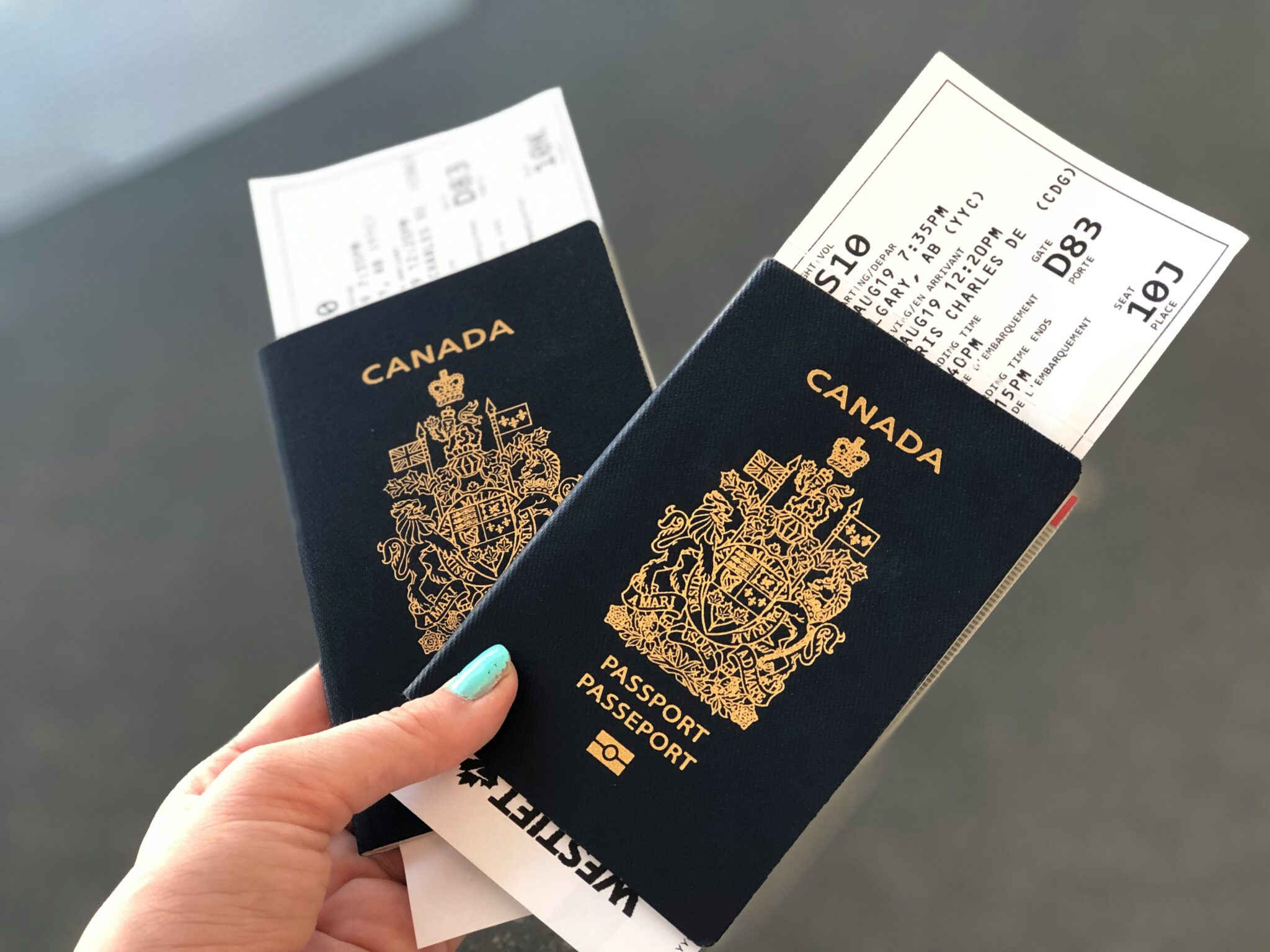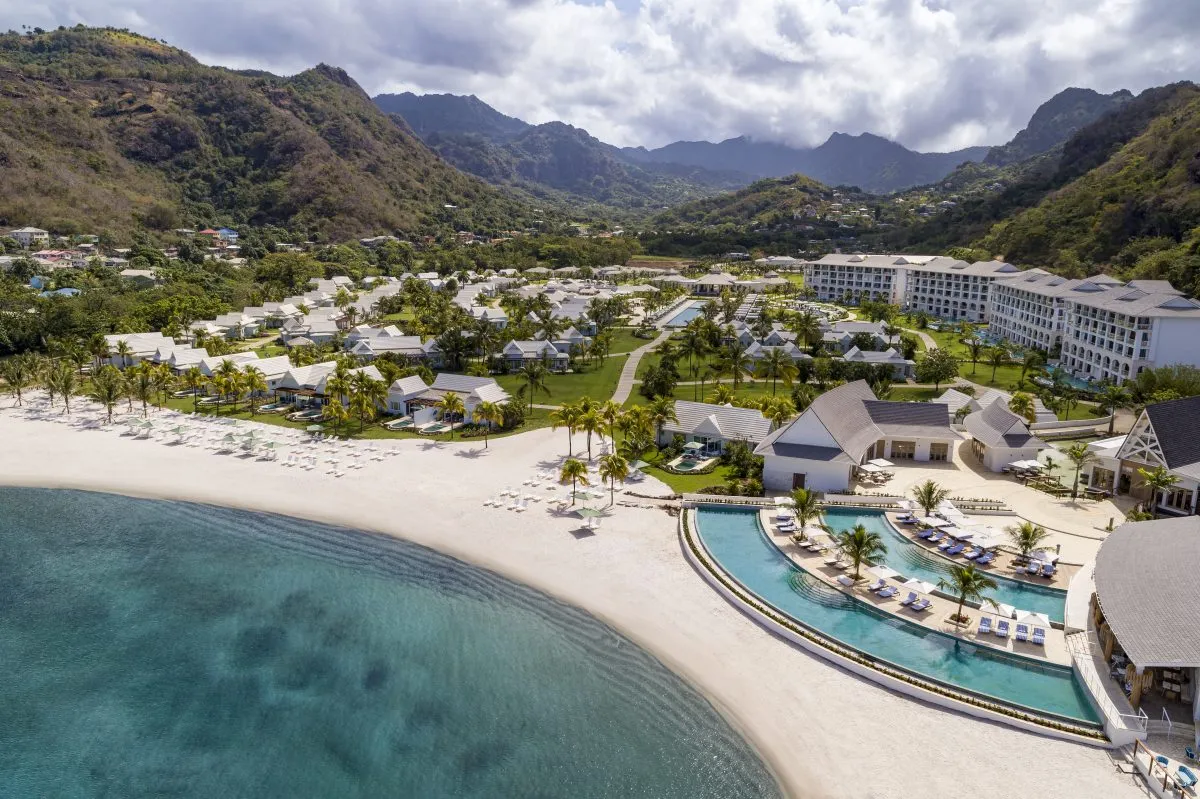The AOC Effect Comes to Travel, Whether You Like It or Not
Skift Take
You are going to be hearing a lot more about the future of transportation, in particular that of rail, cars, cruise, and planes, over the next two years.
That's partially because U.S. Representative Alexandria Ocasio-Cortez in February introduced House Resolution 109, "recognizing the duty of the Federal Government to create a Green New Deal."
More of a wish list than an action plan, the Green New Deal calls on the federal government to rid the transportation sector of pollution, including greenhouse gas emissions, "as much as is technically feasible."
A former bartender, the New York Democrat burst on the scene as the youngest woman ever elected to Congress, and with her 3.2 million Twitter followers and stereotypical New York moxie, Ocasio-Cortez has grabbed the national spotlight in standing up to right-wing bullying through her numerous on-the-mark social media comebacks.
For example, when Republican Senator John Barrasso of Wisconsin accused AOC, as she's known, of trying to eliminate ice cream because under the Green New Deal methane-gas-producing livestock would allegedly "be banned," as would flights, she answered in a tweet, "Trust me, I like ice cream way too much to do that. (I also like visiting my family in Puerto Rico too much to 'ban airplanes.)'"
Trust me, I like ice cream way too much to do that.
(I also like visiting my family in Puerto Rico too much to “ban airplanes”)
Maybe if the GOP did their job for once & read a piece of legislation, they’d see that communities + jobs come FIRST, not last, in the #GreenNewDeal. https://t.co/b7oFVCkmGp
— Alexandria Ocasio-Cortez (@AOC) February 13, 2019
And although President Donald Trump announced in 2017 he would remove the United States from the Paris agreement on climate change, and ignorantly tweets that climate change is a myth because it might be cold outside, Oscasio-Cortez tweeted, "We are already feeling the early nightmares of the climate crisis, & the GOP is doing nothing to stop it — as they have for years. They knew early. & Their goal has been to sow doubt this entire time."
Do you really think these increasingly regular & horrific wildfires & droughts are a coincidence?
That growing regularity of “100-year floods” is an accident?
We are losing our homes & loved ones *now.* 3,000 Americans died in María.
And GOP doesn’t even care enough to try.
— Alexandria Ocasio-Cortez (@AOC) February 13, 2019
Love her or hate her, the newbie Congresswoman has contributed to changing the narrative in Washington about worker rights, Amazon's chutzpah in getting away with paying no federal income taxes in 2017, climate change, and the future of sustainable travel. She also played a role in another controversial matter: Amazon's decision to back out of establishing a second headquarters in Long Island City, New York.
The Green New Deal calls on the federal government to rid the transportation sector of pollution, including greenhouse gas emissions, "as much as is technically feasible." It will undoubtedly be debated over the next two years in the run-up to the U.S. presidential election in 2020.
Several Democratic presidential contenders, including Senators Kamala Harris of California, Cory Booker of New Jersey, Elizabeth Warren of Massachusetts, Bernie Sanders of Vermont, and Jeff Merkley or Oregon, have endorsed the Green New Deal as co-sponsors.
Republicans have seized on Ocasio-Cortez, the Green New Deal and the progressive wing of the Democratic Party as symbols of Venezuela-style "socialism" headed toward the United States, and they have ridiculed the potential costs of the environmental initiative.
The Green New Deal is even controversial within the Democratic Party as Senator Diane Feinstein of California found out when she told young students urging her support for the plan that "there's no way to pay for it." Feinstein argued that the Green New Deal would be dead on arrival in the Senate because it has no Republican support, but the video of her encounter with the students went viral as she was perceived as being arrogant.
"You know what's interesting about this group?" Feinstein told the student backers of the Green New Deal assembled in front of her. "I've been doing this for 30 years. I know what I'm doing. You come in here and say it has to be my way or the highway. I don't respond to that."
In the transportation realm, the Green New Deal calls for government investment in a "zero-emission vehicle infrastructure and manufacturing; clean, affordable, and accessible public transportation; and high-speed rail."
Fox News blared that Ocasio-Cortez aims to make air travel obsolete.
With climate change already impacting global weather patterns, supporters of the Green New Deal liken the mobilization it envisions to President Franklin D. Roosevelt's Depression-era New Deal, arguing that the existential problem requires s similar and massive effort.
"The Green New Deal continues a long-running discussion around U.S. environmental policy," said Philip Minardi, director of policy communications at Expedia Group. "And while it is still just a vague concept, it is important for policymakers to understand the vital role travel, of all modes, plays in the U.S. tourism economy."
Not an Either/Or Question
Airline industry analyst Robert Mann Jr. said if enough people agreed that climate change was a serious issue, then that would be a "tipping point" that might trigger a mobilization to explore new travel modes. But, he added, referring to public perceptions, "There's no clear enemy because we haven't decided there is one."
Mann said the future of travel will have to encompass a variety of transportation types so it's not a question of prioritizing either rail or flights. Although it hasn't drawn a lot of attention, he said "a modal switch" has already taken place in the U.S. northeast corridor. "Amtrak carries more passengers Washington-New York City-Boston than all airlines combined," Mann said.
He noted that there are no airline shuttles anymore from these cities; it's all scheduled airline service. Amtrak, which is now headed by former Delta Air Lines CEO Richard Anderson, "does a better job these days" while airlines cope with airport congestion, including lengthy Transport Security Administration lanes, Mann said.
Asked whether airline executives fear the Green New Deal, Mann said undoubtedly not, adding, "I don't see airline execs quivering over Elon Musk's tunnels, either."
Mann argued that airlines' use of petroleum-based fuels is not the biggest environmental issue. "They don't even influence refineries," he said. "Meetings have a much bigger footprint than jet fuel."
The Green New Deal, in its characteristic vagueness, calls for "upgrading all existing buildings in the United States and building new buildings to achieve maximal energy efficiency, water efficiency, safety, affordability, comfort, and durability, including through electrification."
Mann contended that there are other transportation modes, including cruising, cars and trucks, have available technology that's further along in terms of potential environmental benefits and rewards than the aviation industry. Biofuels, he said, aren't readily available in the quantity and with the economics that would make for a swift transition for airlines.
"There are modes like private cars and over-the-road trucking that could go on a carbon diet and I think produce very significant benefits," he said.
The maritime industry is better-suited at this juncture for an environmentally friendly transition than are airlines, Mann said.
In fact, Carnival Corp. recently launched its first ship, the AIDnova, powered by relatively low-emission liquefied natural gas.
Rail Is Having a Moment
Mann noted that California recently postponed the next phase of a high-speed rail project, and Texas is considering high-speed rail, but the levels of anticipated subsidies would be woefully inadequate. There would be very little improvement, Mann said, "when you take some of the kinks out of the corners."
Tunnel infrastructure, he added, "can't easily be moved."
Amtrak, though, likes its chances as a sustainable alternative.
"Our core business is inherently focused on sustainability," said Amtrak spokeswoman Kimberly Woods. "Passenger rail is one of the most sustainable transportation modes available, and as we increase access to it we can have a national impact on reducing transportation-related carbon emissions. We will continue to operate diesel locomotives in areas that lack electrification, but we expect to invest in new-generation, clean-burning technology to reduce our consumption of diesel fuel and reduce air emissions."
Woods didn't address question specifically about the Green New Deal and the role of Ocasio-Cortez.
"With sufficient and stable funding to address our aging fleet, bridges and tunnels, Amtrak can continue to be a compelling answer to environmental concerns and highway congestion," Woods said.
Meanwhile, Aaron Gowell, co-founder and CEO of UK-based rail aggregator SilverRail, hadn't kept up with the U.S.-oriented Green New Deal, but said, "My understanding is that the U.S. is pulling back on rail investment in a number of places, such as California’s high speed rail dreams being cut back."
Gowell said investing in high-speed rail "makes huge sense for the environment, especially in major transit corridors such as Boston to New York City," although he was quick to point out that Amtrak's Acela "is not really high-speed rail" by international standards.
It's clear, though, that high-speed rail and other modes of sustainable travel will get a much larger airing during the upcoming presidential debate season, and with Ocasio-Cortez seeming to offer the right blend of insights and sass about it on social media.
The ex-bartender offered up her version of "Cocktails for the Revolution" on Twitter, making a reference to Trump nemesis Stormy Daniels, the exotic dancer. One of Ocasio-Cortez's dreamed up cocktails served as warning: "A world w/o a Green New Deal: a Bitter Dark n' Stormy."
Cocktails for the Revolution:
- World w/o a #GreenNewDeal: a Bitter Dark n’ Stormy
- Clean transport: an Aviation, but hold the crème de violette
- Bridges, Not Walls: a Mezcal Greyhound
- Paid Parental Leave: Mocktail margarita
- Policy Failure: anything w/ Goldschläger— Alexandria Ocasio-Cortez (@AOC) February 11, 2019
Skift’s in-depth reporting on climate issues is made possible through the financial support of Intrepid Travel. This backing allows Skift to bring you high-quality journalism on one of the most important topics facing our planet today. Intrepid is not involved in any decisions made by Skift’s editorial team.





